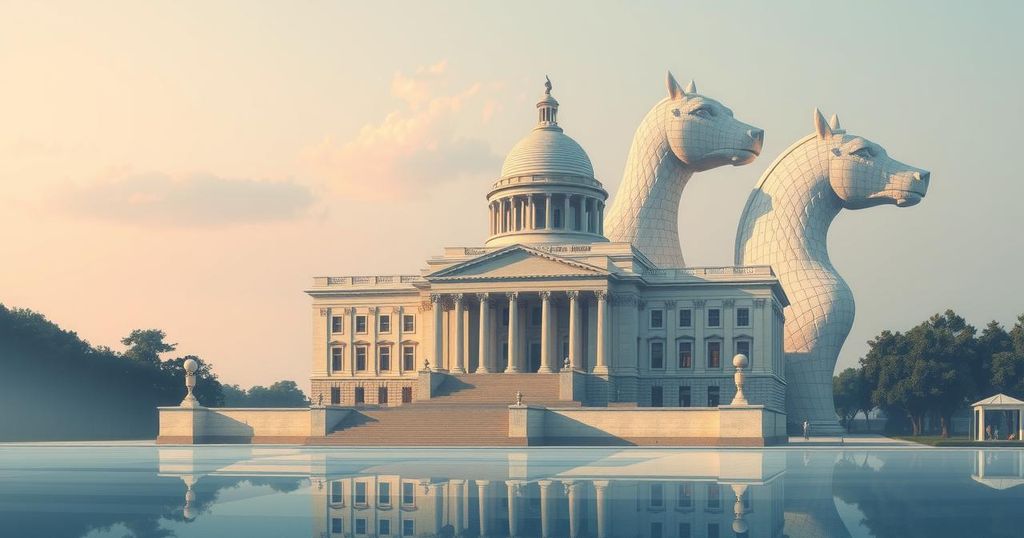A leaked proposal in Zimbabwe aims to amend the Constitution, extending presidential and parliamentary terms by at least five years beyond 2028. Confirmation from Zanu PF’s Energy Mutodi suggests collaboration between the ruling party and a CCC faction. The draft motion, now circulating, requires official endorsement to be enacted.
In Zimbabwe, a Zanu PF parliamentarian has confirmed ongoing discussions among the ruling party and a faction of the opposition, Citizens Coalition for Change (CCC), regarding a proposed amendment to the Constitution. This amendment aims to extend the presidential and parliamentary terms, as well as the terms of councilors, by at least five additional years beyond their scheduled expiration in 2028.
Energy Mutodi, the Member of Parliament for Bikita West, noted that a draft motion concerning-term limits had been “untimely leaked to the media.” He confirmed the proposed draft currently circulating on social media is legitimate and in progress. The officialization of this motion will occur once it is signed by the Speaker of Parliament, Jacob Mudenda, and its supporters.
The proposed changes are ostensibly being pushed by both the ruling Zanu PF party and the CCC faction that is cooperating with them. If passed, this amendment may significantly alter the political landscape in Zimbabwe by prolonging the current leadership tenure. These developments come amid concerns about the implications for democratic governance and electoral integrity.
The issue of extending presidential and parliamentary terms in Zimbabwe is significant within the context of its political history. President Emmerson Mnangagwa’s administration has faced scrutiny regarding governance, human rights, and democratic practices. The proposed amendment may reflect internal party negotiations and the dynamics between the ruling party and the opposition, suggesting a strategic effort to consolidate power beyond established limits set by the current constitution. Zimbabwe has undergone various constitutional reforms in the past, and any amendment to fundamental governance structures could have substantial ramifications for the country’s political stability and public perception of its democratic processes.
In summary, the Zimbabwean government’s proposal to amend the Constitution to extend the terms of office for the President, legislators, and councilors has become a point of contention. With confirmation from Zanu PF legislatures, this initiative raises concerns regarding the implications for democratic governance. As the draft is scrutinized, the response from opposition factions and civil society will be critical in shaping the discourse surrounding this proposal moving forward.
Original Source: constitutionnet.org






